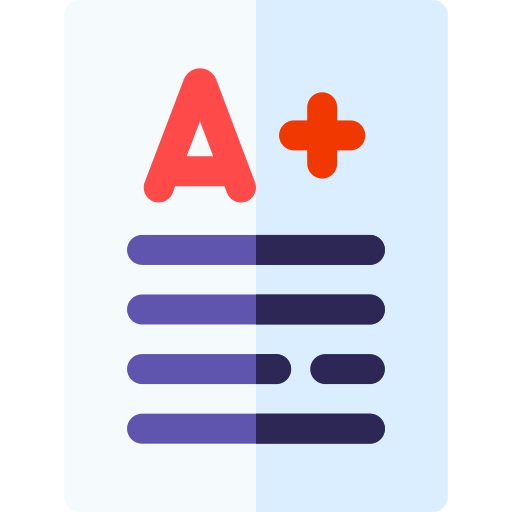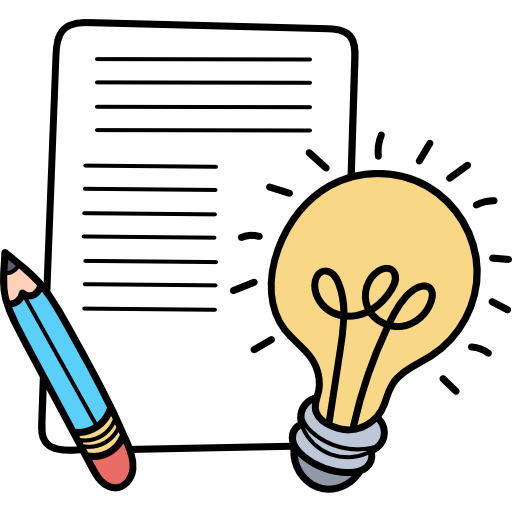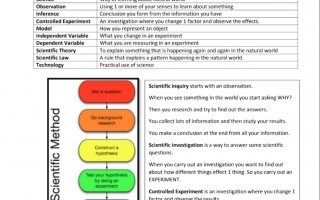أوراق عمل مراجعة شاملة علوم منهج انجليزي صف خامس : نقدم اليكم في هذا الملف مجموعة من أوراق العمل الشاملة تتضمن عددا من الأسئلة والتدريبات الهامة ، من منهج العلوم الصف الخامس ،و قد تم تصميم هذا الملف لمساعدة طلابنا الاعزاء، في دراستهم و تحضيرهم للامتحان النهائي بشكل متكامل.
SCIENCE REVIEW SHEETS CHAPTER 1 - BUILDING A BETTER SCIENTIST
LESSON 3 - TOOLS OF THE SCIENTISTS
Vocabulary
Quantitative data Qualitative data Description Explanation Precision Consistency Mean Median Range
This data can be measured using some Qualitative data quantity or amount
This data cannot be measured using some quantity, so it is not numeric
A summary of observations
an interpretation of why something occurs
How close repeated measurements are to each other
Ability to repeat something with little or no changes
the number that is halfway between the high and low number of the data set
the middle number between the high and the low number
the difference between the highest and the lowest values
What are some variables you might measure in a scientific investigation
mass, height, volume, time, distance, temperature
How would you organize the data you collect during a scientific investigation
The data can be organized in a table
What are some things that would be measured using quantitative data
height, age, length, weight
What are some things that would be measured using qualitative data
texture, color, smell
What is the difference between a description and an explanation
A description is simply a summary of the observations. An explanation is an interpretation of why something occurs
How could you increase the precision of a measuring tool
Make the units on the tool smaller
What are some visual ways in which scientists can organize and communicate data
tables and graphs
What is an advantage to organizing data in a graph
it easily and quickly gives us a picture of the relationship between the variables involved
What role do statistics play in communicating information about data
Statistics summarize and help to evaluate the data
When is a line graph most appropriate
When you want to show the relationship between two variables
LESSON 4 - MAKING MEASUREMENTS
What properties of matter can you measure
height, weight, temperature
What tools do you use to measure length, weight and temperature
ruler, scale, thermometer
Why is it important to know how to measure matter
Measured amounts can be compared. Sometimes you might need to know how much of something you have
Why is it important to know how to observe matter
So matter can be compared to describe objects
What are some properties you can use to describe objects
You can use physical properties size, shape, weight and color
How does a hand lens help scientists observe objects
It magnifies an image of the object so that scientists can make more detailed descriptions
Why are microscopes important in scientific work
Scientists can observe and describe the physical properties of very small objects, such as cells
Which properties can be used to measure a backpack
length, width, weight
Why is it useful to use measurements when describing physical properties
to be more precise
How do we find the measurable properties of an object, such as length or weight
We use tools such as rulers and scales
How could you measure the distance around a ball
Measuring tape and ruler Science
Use a tool that measures length such as a tape measure
Tools
Which metric unit would you use to measure the thickness of a Dirham
Millimeter
Measuring cups and sos
Which metric unit would you use to measure the length of a guitar
Meter
DEPARTMENT OF AND KNOW
Chapter 1 Practice Questions
Science
different types of information that can be collected to answer a scientific question
is a way of learning about the natural world
is using one or more of your senses to identify or learn about something
a series of steps that scientist use when conducting a scientific investigation
. Hypothesis
the practical use of science. a description of how close repeated measurements are to each other is conclusion formed from available information or evidence. is a prediction that can be tested in investigation
. Earth science
a rule that describes a pattern in nature. Ex : gravity force. • The study of living things. Ex : study plants and animal
the study of matter (Chemistry) and energy (Physics). the study of earth and space. Ex : study rocks, soils, oceans, clouds, rivers and climate system
. Dependent variables
the variable that is being measured during an investigation
a rule that describes a pattern in nature. Ex : gravity force
is an attempt to explain a pattern observed repeatedly in the natural world. the variable that is changed in controlled experiment
DEPARTMENT OF AND KNOW
Chapter 1 Practice Questions
. Science : different types of information that can be collected to answer a scientific question
is a way of learning about the natural world
is using one or more of your senses to identify or learn about something
a series of steps that scientist use when conducting a scientific investigation
. Hypothesis
the practical use of science. a description of how close repeated measurements are to each other is conclusion formed from available information or evidence. is a prediction that can be tested in investigation
. Earth science : a rule that describes a pattern in nature. Ex : gravity force
The study of living things. Ex: study plants and animal
the study of matter (Chemistry) and energy (Physic
the study of earth and space. Ex : study rocks, soils, oceans, clouds, rivers and climate system
. Dependent variables
the variable that is being measured during an investigation
a rule that describes a pattern in nature. Ex : gravity force
is an attempt to explain a pattern observed repeatedly in the natural world. the variable that is changed in controlled experiment
Scientific law : • a rule that describes a pattern in nature. Ex : gravity force. the variable that is being measured during an investigation, is an attempt to explain a pattern observed repeatedly in the natural world. the variable that is changed in controlled experiment
. Data: • different types of information that can be collected to answer a scientific question. . is a way of learning about the natural world
is using one or more of your senses to identify or learn about something. . a series of steps that scientist use when conducting a scientific investigation





